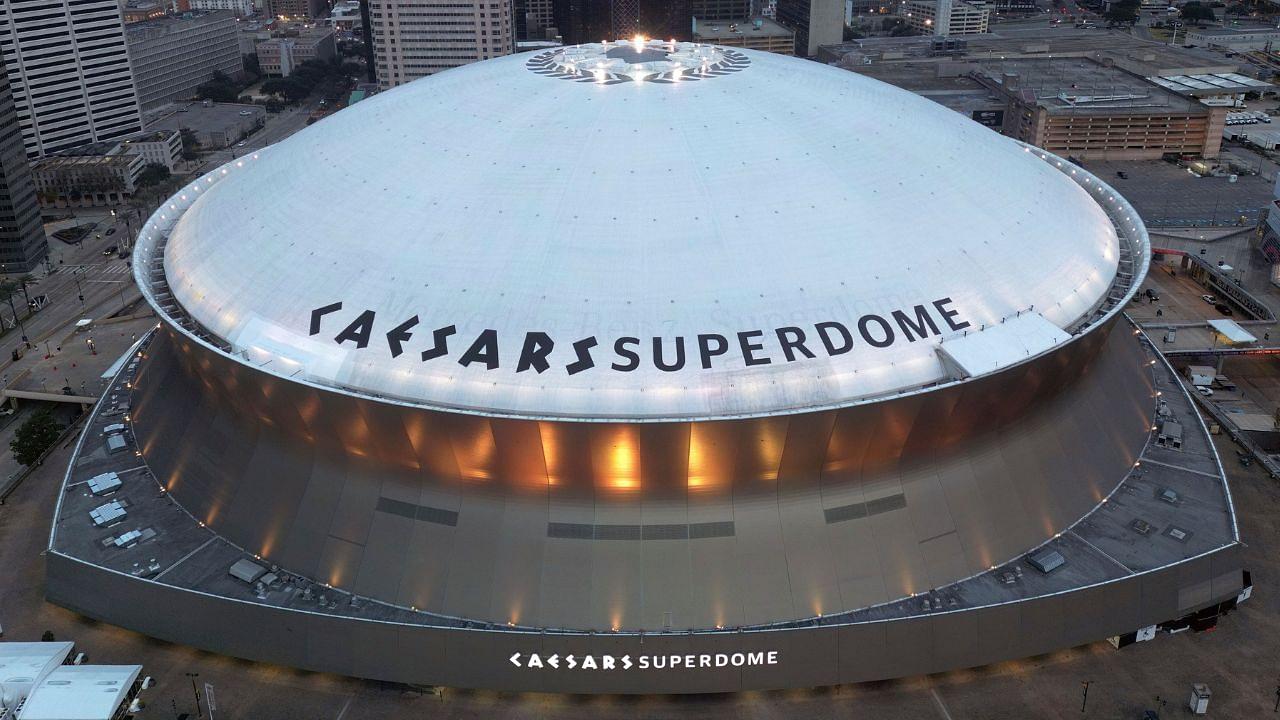Earlier this year, the Kansas City Chiefs successfully defended their Super Bowl title at the Raiders’ Allegiant Stadium. This year, the club will be looking to make it a three-peat at the New Orleans Superdome. But even before the season began, the drama surrounding the Saints’ home turf, particularly a dispute over renovation costs amounting to $11.9 million, has generated significant attention and discussion online.
Advertisement
According to recent reports, the Saints have been withholding the $11.9 million in payments because of a lease dispute with Louisiana Stadium and Exposition District. While Who Dats finally made the payment, diffusing the tension between the franchise and LSED, as reported by Adam Schefter on ‘X’, fans weren’t quite happy with the franchise for withholding the funds since last December.
Several went on to label the Saints as petty for creating a regrettable situation over such a small amount, while others insisted that the onus of stadium repairs should fall on the owners and not on taxpayers.
Some even questioned the NFL’s choice of hosting the Super Bowl in a stadium that is in deplorable condition. There were also a few who were supportive of the Saints holding back the payments, feeling they were justified if the government failed to honor its commitments. Take a look:
That’s sad that the Saints would try to hold money! Bad luck on the organization!
— Tiger Den Sports (@tigerdensports) May 25, 2024
Another chimed in and added,
So petty over such a small amount of money
— Mike Fritz (@MikeFritzArt) May 25, 2024
A fan wrote,
Owners should pay for their own renovations. Shouldn’t be thrown on the public
— BestballJonesy (@BestballJonesy) May 25, 2024
Someone commented,
Pay for your own got damn stadium. ESPECIALLY if you’re hosting the Super Bowl. So much money coming in.
— Making Hay Podcast (@MakingHayPod) May 25, 2024
A user stated,
Why is that pile hosting the SB? it’s a fair question
— MoBliss (@MoBliss27) May 25, 2024
A fan quipped,
After reading the article it sounds like government doing government things being shady by not living up to their end of the deal. Robert craft is a genius by owning Gillette stadium out right.
— Brock Van Wagoner (@BrockVWoodsy) May 25, 2024
Others said,
It was also about the lease and negotiations. There’s more to the story than money.
— ꕥ ꕥ (@NicoleOnBeale) May 25, 2024
According to franchise president Dennis Lauscha, tension arose when LSED acted in bad faith and decided to change the terms of their lease, further diminishing the club’s rights in the stadium.
In 2019, a partnership between three parties was established for a $450-$550 million upgrade to Caesars Superdome, with a mutual agreement that the state and the Superdome Commission would execute a long-term lease with the Saints. However, when the other parties reneged on that agreement, the franchise, after repeated warnings, decided to withhold payments for renovations and repairs.
Nevertheless, the Saints’ Superdome is set to get into the annals of Super Bowl history as the stadium continues to get the chance to host the biggest game of the year.
New Orleans’ Super Bowl History
The Las Vegas Super Bowl went without a hitch. The same will be expected when the 2024 season reaches its finale; however, history tells us that things could go sideways in the Superdome very quickly.
The Saint’s Stadium is set to host the penultimate game of the season for the 11th time in 2025. The last time they hosted the Super Bowl was in 2013 for the Harbaugh Bowl, with the Ravens emerging victorious. During the game, after the halftime show, the Superdome lost power for 33 minutes, delaying the game and giving fans a forgettable experience.
Super Bowl LIX will be held on Sunday, February 9, 2025. But given the history, ongoing drama, and stadium’s deplorable conditions, along with the poor infrastructure of the city, it doesn’t instill optimism.
Moreover, Louisiana is one of the poorest states in the country. While the city of New Orleans is lively, it takes more than just atmosphere to host a Super Bowl. The reports and belief that the big game is a cash cow are somewhat far-fetched. It takes years to see the results of such events, and they haven’t always been positive.







